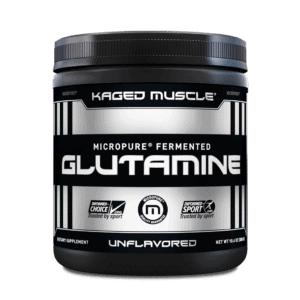
The standard gut health advice never worked for me. Like many others, the issues I had were hard to diagnose. They didn’t fall neatly into the category of IBS, Crohn’s, or lactose intolerance. It was just general stomach discomfort and uneasiness that reached varying degrees of severity for no real rhyme or reason. There wasn’t an obvious trigger that was easy to pinpoint and eliminate from my diet.
The usual suspects did not pose a problem. Gluten was no issue. Quite the contrary actually, I digest bread and pasta very well. Dairy wasn’t much of an issue either, so lactose intolerance was out of the equation. However, whey protein was completely intolerable. One shake and I was in pain on the couch waiting for it to subside. Quality made no difference, filtered whey isolates and whey hydrolysates were just as bad as a cheap Walmart brand.
My approach was different because my situation was different. I wasn’t going to find the one food to eliminate which would make all my problems go away. Every meal I ate led to some level of discomfort. It wasn’t enough to be debilitating but it was enough to stay on my mind. My stomach would churn and I would feel uneasy. So I decided to address gut health as a whole rather than focus on one thing. The action items below focus on improving overall digestive health.

1. Supplement with Glutamine
Glutamine is an amino acid used in bodybuilding circles as a way to alleviate soreness from workouts. It is considered a conditionally essential amino acid, a rare hybrid between essential and non-essential amino acids. In other words, your body can produce glutamine but in certain situations it is recommended to get more via supplementation or diet (like for active individuals).
What many don’t know are glutamine’s beneficial effects on the gut. The cells that line the intestines use glutamine for fuel. In addition, glutamine can suppress inflammation and stress in the gut. Overall it’s a great supplement to maintain the integrity of the intestinal wall.
Some have suggested that this effect is helpful for people with leaky gut syndrome. The theory is that by keeping the intestinal wall strong, it would prevent undigested food particles from entering the blood and causing inflammation. In a perfect world your gut lining would have very small gaps to allow certain nutrients through. This is called intestinal permeability. As the name suggests, in leaky gut syndrome these gaps become too large and too much passes through. Keep in mind that leaky gut is not an official medical term.
People who are using glutamine to help repair their gut will typically use a loading protocol of 25-35g spread throughout the course of the day for about 5 days. Beyond that they stick with a maintenance dose of about 5g per day. Glutamine is a relatively cheap supplement and comes in powder and pill form. Powder is considered more practical and easier to absorb.
2. Avoid Caffeine
This is not out of the ordinary when it comes to gut health advice, but what I typically see is the avoidance of coffee rather than caffeine in general. This could just be because coffee is an incredibly popular drink, more so than energy drinks and pre workout supplements. What I think is off the mark about avoiding coffee is not the tip itself, but the reason behind it.
When health experts advise individuals with stomach issues to avoid coffee, they typically cite the acidity of coffee rather than the caffeine content. But it’s debatable whether it’s the acidity of the coffee or the caffeine itself (or both) than can cause damage to the stomach lining. It may not matter since energy drinks, like coffee, are also acidic and contain caffeine as well.
Caffeine can do some weird and unpredictable things in the GI tract. A cup of coffee or a can of Rockstar can send you running to the bathroom since caffeine can speed up the digestive process. One of the mechanisms that allow caffeine to provide energy is an increase in adrenaline hormones. This can lead to stomach cramping and lack of blood flow as adrenaline is a stress hormone. Even though your body is not in a stressful situation, stress is mimicked via caffeine ingestion.
Caffeine itself, not limited to caffeine in coffee, can cause acid reflux in individuals. This is not limited to people who drink it once in awhile, habitual drinkers also can experience this. With the hypothesis that caffeine, and not acidity, is a cause of stomach discomfort, caffeine pills should be avoided as well.
3. Fasting
Digestion is hard work. There is a metric called the thermic effect of food which measures how many calories are burned just through digestion and metabolism. Pretty cool concept, you eat food and immediately burn calories. Each nutrient has a certain thermic effect, with protein and fiber requiring the most energy to digest.
By fasting and consuming nothing but water, it takes stress off the digestive tract and allows it to repair and recover. How long to fast is up to you, most people who fast for this purpose go for about 24 hours. Remember that 24 hours doesn’t have to mean one full day, morning to night. You could start fasting at say 4pm on a Wednesday and conclude at 4pm on Thursday.
Some people use fasting as part of their daily lives in an intermittent fasting diet protocol. There are many versions of intermittent fasting, with fasting windows lasting from 16 hours to 24 hours or more. This is popular amongst individuals who like to exercise on an empty stomach, especially in the morning. Intermittent fasting has put a stop to the myth that you have to eat before you work out.
I want to address some of the common remedies that you are likely to come across in a google search and why they may provide minimal results.
Probiotics
The human digestive system contains approximately 100 trillion bacteria, good and bad, whose purpose is to help digest food and support immune health. Probiotic supplements contain these microorganisms in pill form, obviously in much smaller amounts.
Probiotic supplements have made their way into nearly every health food store and supermarket. As far as over the counter products go, the potency can range from 1 billion CFU to 200 billion CFU per serving. The research on probiotics, despite their popularity, is relatively new and unclear.
The problem with probiotics is that there are tons of different strains found in different amounts in these supplements. Therefore advice for improving gut health can’t just be “take a probiotic.” You need to know which ones and how much. And with limited research, there isn’t always a definitive answer. In many ways supplementing with a probiotic is a dart throw; sometimes you get lucky, but most times it’s another 50 bucks down the drain.
Low FODMAP Diets
FODMAPs are fermentable oligosaccharides, disaccharides, monosaccharides, and polyols. Don’t let the big words confuse you, they are basically just a collection of different types of carbohydrates. It’s been hypothesized that individuals can be sensitive to these carbohydrates and thus experience gut issues because of the unique way in which they are digested. Thus, a low FODMAP diet was developed to help these individuals avoid foods containing these fermentable carbohydrates in an attempt to alleviate the pain.
If it works for you then great, you’ve won. The problem is that a Low FODMAP diet could eliminate upwards of about 100 foods depending on your source of information. It would be difficult to avoid these foods forever.
Let’s say the diet worked, but you want to figure out the exact culprit. You would have to meticulously eliminate each food single handily for a period of time as an experiment. Obviously, this would be very tedious. You may not care since all you sought was relief, but over time elimination diets become very difficult to follow.
Note: Nothing in this article is designed to diagnose, cure, or treat any disease.
Recent Posts
Stretching Before Workouts: Essential Warmup or Performance Killer
“Don’t stretch before workouts, your muscles become too supple” “Stretch before your workouts, warming up is important” It's conflicting advice like this that drives people crazy,...
Best Protein Bar For the Money | Cost Effective, High Quality
Protein bars are no longer a supplement dedicated to diehard gym rats, with awful taste and the consistency of a brick. Men, women, and even teenagers can commonly be seen eating protein bars. The...
